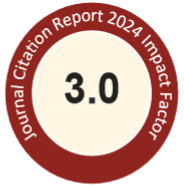Abstract
Phytochemicals found in food have revealed noteworthy roles in treating and managing a large number of human diseases. The structure, source, bioavailability, pharmacokinetics and anti-cancer activity of resveratrol, a bioactive compound present mainly in red wine, are reviewed in this article. Resveratrol, a polyphenol, is a stilbene-type aromatic phytoalexin, which is principally found in red grapes. Numerous physiological activities like antioxidant, anticancer and antiaging activities of resveratrol have been elaborated in vitro, in investigational animal models and in human subjects. Studies in humans are still in the preliminary phases and thus, more investigations are required. The anticancer activity of resveratrol is essentially attributable to the genetic variation, moreover, the stimulation of apoptosis through a number of modes, as well as expressions, all causing a reduction in tumor initiation, promotion and progression. No side effects are produced by resveratrol, even when used at elevated quantities. Consequently, resveratrol holds excellent potential to be consumed as an adjunctive or substitute remedy for cancer.
Recommended Citation
Murtaza, G.; Latif, U.; Najam-Ul-Haq, M.; Sajjad, A.; Karim, S.; Akhtar, M.; and Hussain, I.
(2013)
"Resveratrol: An active natural compound in red wines for health,"
Journal of Food and Drug Analysis: Vol. 21
:
Iss.
1
, Article 12.
Available at: https://doi.org/10.6227/jfda.2013210101

